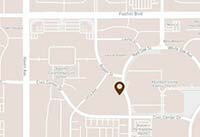Let’s have an open conversation about gastric sleeve surgery and what you can truly expect when it comes to your skin after your weight loss journey.
One of the top concerns I hear from people considering the procedure is this: “What will happen to my skin after I lose the weight?”
And I get it. You’ve probably come across those dramatic, headline-grabbing photos online or on TV—people with significant excess skin after weight loss surgery. It’s natural to wonder, “Will that happen to me?”
The good news is that while excess skin can occur, for most people, it’s not as big of a deal as you might think. Let’s break it all down and talk about your journey—not the extremes splashed across the media.
What Gastric Sleeve Before and After Skin Really Looks Like
First off, loose skin is not a guaranteed outcome after gastric sleeve surgery. Yes, it’s something to consider, but for many, it’s a minor issue—or none at all.
Your skin’s response after weight loss depends on a variety of factors, including your age, gender, genetics, and how much weight you lose. These all play a role in determining how your body will adjust after the surgery.
Think about it this way: your skin has been stretched for a long time due to weight gain, and it’s been under pressure. Like a stretched-out rubber band, it might not snap back into its original form perfectly—but that doesn’t mean it won’t rebound at all.

What causes loose skin after bariatric surgery, and how can it be reduced?
Loose skin after bariatric surgery can happen for several reasons, and it all comes down to how your skin’s elasticity handles the changes. The elasticity of your skin relies heavily on two important proteins: collagen and elastin, which work to keep your skin firm and resilient. When skin stretches significantly due to weight gain, these fibers can lose their ability to “snap back,” much like a rubber band that’s been overstretched. The duration of obesity plays a big role, too. Think of it like a balloon—if it’s been inflated for a long time, once deflated, it doesn’t always return to its original size. The same principle applies to your skin, which adjusts based on how long it’s been stretched and the amount of weight it has had to accommodate.
Several other factors also come into play, including age, gender, genetics, and starting weight. Younger individuals tend to have skin that’s more elastic due to higher collagen levels, while men and women may experience differences in skin changes because of variations in skin thickness and fat distribution. Genetics also matter—a family history of good skin elasticity increases your chances of your skin bouncing back. Similarly, the more weight you lose, the more your skin has been stretched, making sagging a greater possibility.
Even if you notice some loose skin after surgery, it’s important to remember that it’s not a permanent setback, and there are steps you can take to improve its appearance. Staying hydrated helps keep your skin supple and healthy, while a protein-rich diet promotes collagen production, which is essential for maintaining elasticity. Regular exercise, especially strength training, can tone the muscles beneath your skin, which can reduce the sagging effect. You can also turn to skincare products designed to boost collagen and elastin, which may help firm your skin over time. Above all, patience is key. Skin doesn’t adjust overnight, and it can take months or even years for it to tighten fully. With time and care, many of these changes can improve significantly.
Gastric Sleeve Surgery Scars: What to Expect
Another common question is, “What about the scars?”
Here’s the reassuring part: gastric sleeve surgery is typically performed laparoscopically, meaning the incisions are small and strategically placed. The scars are minimal and usually fade significantly over time. With proper care—like using scar creams, avoiding sun exposure, and keeping the area moisturized—they often become barely noticeable.

Considering Body Contouring Surgery?
For some individuals, loose skin may remain a concern even after making efforts to manage it. In such cases, body contouring surgery could be an option worth considering. This procedure is designed to remove excess skin and reshape areas like the abdomen, arms, or thighs, but it’s not something you need to decide on right after your gastric sleeve surgery. It’s recommended to wait 12 to 18 months after your weight has stabilized before exploring this option. That said, body contouring isn’t for everyone—only about 10–20% of gastric sleeve patients opt for it, as most people are satisfied with their results without additional surgery. To be a good candidate, you’ll need to be in good health, maintain a BMI under 30, and be a non-smoker. Ultimately, body contouring is a highly personal choice, not a necessity, and the decision should be based on what feels right for you and your goals.
The Big Picture
Your journey with gastric sleeve surgery is about so much more than just the way your skin looks. It’s about improving your health, your confidence, and your quality of life.
Let’s recap the key points:
- Loose skin isn’t inevitable. Many factors influence your skin’s response, and for most people, it’s a manageable concern.
- Gastric sleeve surgery scars are minimal and often fade with proper care.
- Body contouring is a choice—not a requirement. Most patients don’t need additional procedures to feel great about their transformation.
Above all, remember that your decision to undergo gastric sleeve surgery is deeply personal. It’s about reclaiming your health and embracing a new chapter in your life.
Ready to Begin?
Your journey to a healthier, more confident you doesn’t have to end with unanswered questions about gastric sleeve before and after skin or gastric sleeve surgery scars. Every person’s experience is unique, and understanding what to expect—and how to manage these changes—is an important part of preparing for your transformation. If you’re considering gastric sleeve surgery or want personalized advice about your skin’s recovery and healing, we’re here to help. Schedule a consultation today to discuss your goals, address any concerns, and take the next step toward a life-changing outcome.
Here’s to your health, your happiness, and your transformation—inside and out!






















